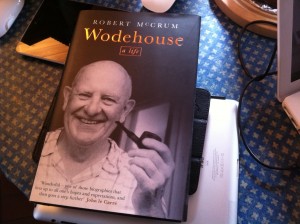Terrific Esquire blog post by Charles Pierce, triggered by the news that Obama is having dinner with some of the more lunatic Republicans. “The president is having some congressional Republicans over for dinner again”, is how Pierce puts it, “so that he can conduct another seance for the purposes of getting their political souls to rise from the dead”. One of the invitees is Senator Johnny Isakson of Georgia. “Isakson”, writes Pierce, “apparently, has been giving the president the impression that he may be the new leader of the Not Entirely Insane wing of his party’s congressional caucus, a position that has been open since Richard Lugar failed his annual carbon-14 dating test and was retired to an Indiana tree farm”.
And this is how the post ends:
Too often, the economic problems of this country are sold to its citizens as being far too complex for them to understand and, therefore, by clear implication, too complex for political democracy to handle. And the hell of it all is that most people are completely aware that this is happening to them. They see it in their own lives. It’s not as though the foreclosures, and the looted pensions, and the food-or-medicine decisions are happening in some Phantom Zone to other people.
What’s worse is that this is not being done by stealth, or by sharp practice, though sharp practices there are. It is being done deliberately and people are being encouraged by their government and by the courtier political media — and by the utterly corrupt financial media, especially on television — that their stagnant wages and the yawning gap in income inequality are both symptoms that the economy is getting better. A viable democracy is not sustainable within the economic model, and subject to the economic forces, that are prevailing now in our politics. Sooner or later, something’s going to blow. People are being asked to ignore the circumstances that are grinding them down, day by day, and being told that their economic pain is really for their own good. Who are you going to believe, after all, Maria Bartiromo or your own lying eyes?
Pierce is right. Soon or later, something’s going to blow.

